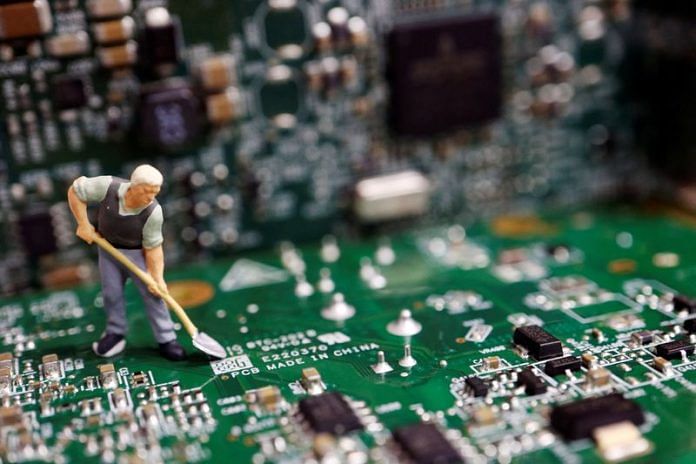By Dagmarah Mackos
(Reuters) – Dutch chipmaking parts supplier BE Semiconductor Industries (Besi) missed expectations for third-quarter new orders on Thursday and forecast flat fourth quarter revenues, citing shipment delays for specific hybrid bonding systems.
Strong growth in computing end-user markets, including hybrid bonding, photonics and AI applications, was partially offset by ongoing weakness in automotive and Chinese markets, a trend the company expects to persist throughout the year, it said.
Amid rising demand for AI technology, Besi is banking on its hybrid bonding tools used to create tighter interconnections inside a chip, but a slower than expected recovery in automotive and smartphone markets, along with high inventories, are raising concerns about global semiconductor demand.
The company’s order bookings fell 18% quarter-on-quarter to 151.8 million euros ($163.8 million) in the three months to the end of September, compared with an estimate of 177 million euros cited by Visible Alpha analysts.
Besi said it received substantial orders for hybrid bonding systems from both existing and new customers and anticipated additional orders in the fourth quarter as global adoption continues to expand.
It also highlighted growing interest in its TCB Next system from major logic and memory customers, positioning the company well for expected growth in next-generation 2.5D packaging and high-bandwidth memory applications.
For the fourth quarter, the company sees flat revenues, with an estimated variation of 10%, compared with 156.6 million euros in July-September, and a gross margin of 63-65%, down from 64.7% in the third quarter.
Besi, which counts TSMC, Intel, Samsung Electronics, and SK Hynix among its customers, blamed shipment delays from an unidentified customer for hybrid bonding systems due in the fourth quarter.
Following strong pandemic demand, chipmakers built excess capacity, but as supply chain issues eased, they delayed new tool orders until their factories neared full capacity.
Besi added it expects a sharp increase in demand for hybrid bonding systems in 2025, and plans to double its cleanroom facilities in Malaysia to meet it.
($1 = 0.9267 euros)
(Reporting by Dagmarah Mackos; Editing by Mrigank Dhaniwala and Mark Potter)
Disclaimer: This report is auto generated from the Reuters news service. ThePrint holds no responsibilty for its content.



